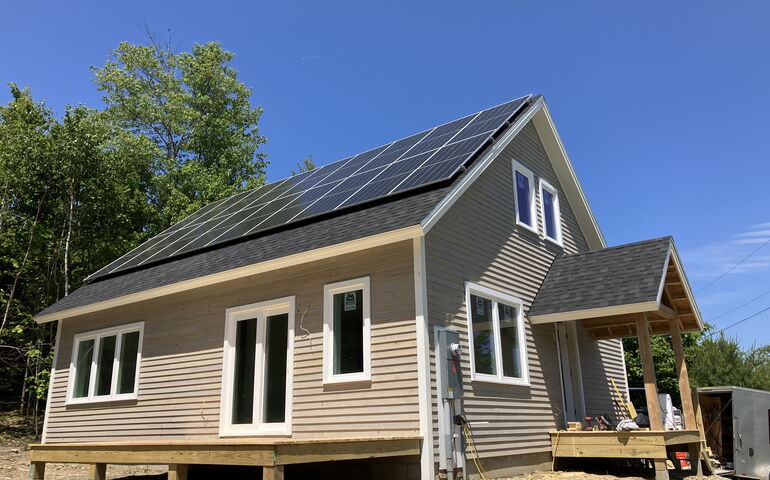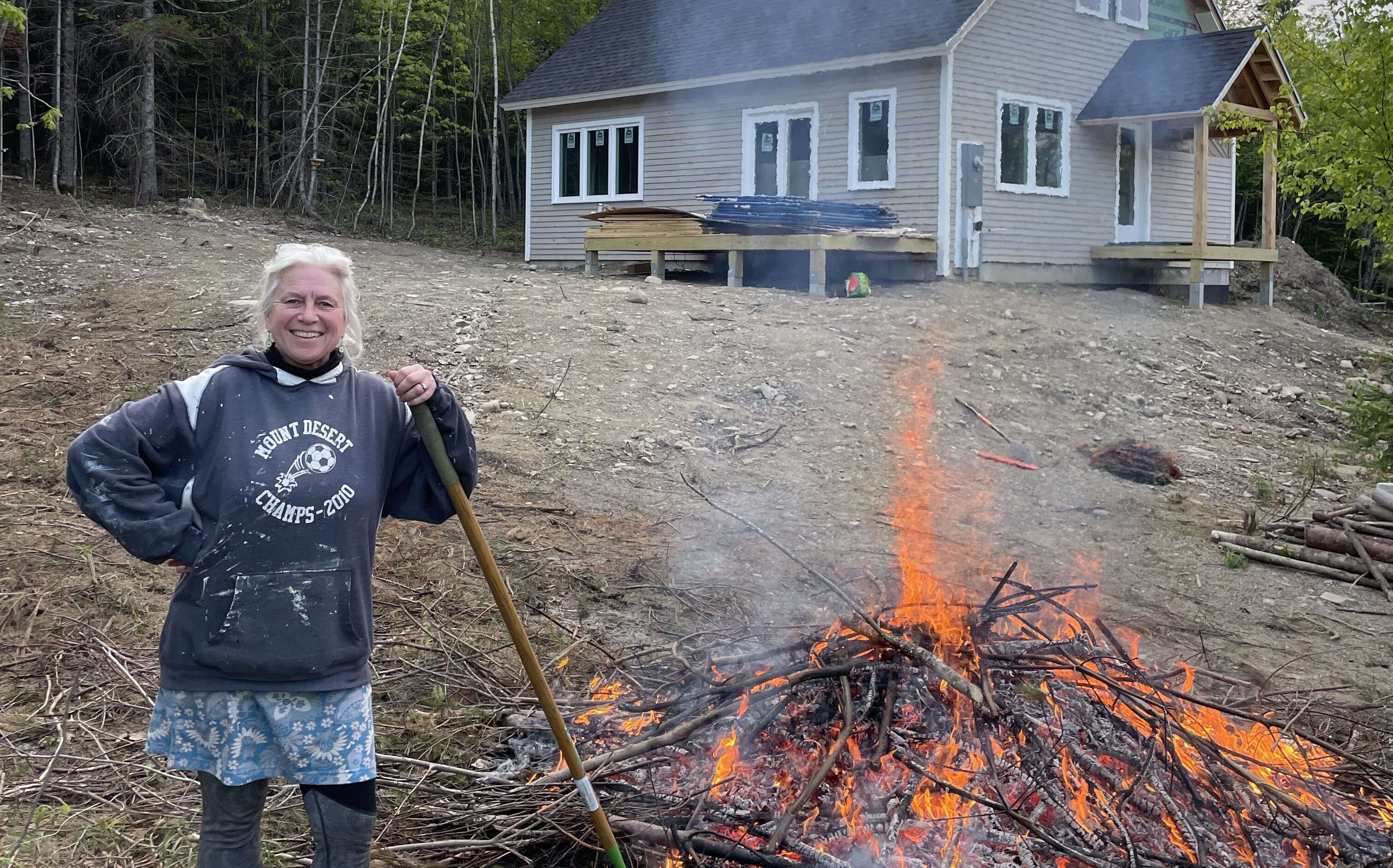Maine developer of affordable, energy-efficient homes will ramp up
 Photo / Zero Energy Homes
Zero Energy Homes is almost finished building its single-family demonstration home at 14 Osprey Lane in Searsport.
Photo / Zero Energy Homes
Zero Energy Homes is almost finished building its single-family demonstration home at 14 Osprey Lane in Searsport.
Zero Energy Homes — a startup looking to show how modular construction combined with “net zero energy” principles can be priced for the affordable housing market — is almost finished building its single-family demonstration home in Searsport and is working toward the development of 10 new homes over the next year.
It is also looking for a site to manufacture modular homes, with the search area in a region defined by Ellsworth, Belfast and Brewer.
Leading those developments will be Steve Eaton, who recently joined the team as vice president of operations.
Eaton brings over 20 years of aerospace and defense manufacturing experience and most recently served at Norsk Titanium, an additive manufacturing company. As vice president of operations of the Norsk Titanium facility in Plattsburgh, N.Y., he led North American operations, oversaw a team of 50 employees and led the build of an 80,000-square-foot manufacturing facility.
“Steve's manufacturing and business leadership skills are exactly what we need to take Zero Energy Homes to the next level of development,” said Caroline Pryor, Zero Energy Homes president and founder.
The plan is to build more panelized homes off-site around the state this year and next, and to find a site for a manufacturing facility, Pryor said.
Eaton’s position was made possible in part through a second round of grants from Maine Technology Institute’s Pandemic Recovery for an Innovative Maine Economy Fund, or PRIME, grant program.
Money for the fund came from the state’s Department of Economic and Community Development an is intended to assist businesses within certain technology sectors and help them mitigate the adverse economic impacts associated with the pandemic.
“We are pleased to provide Zero Energy Homes with PRIME funding as part of our efforts to support small Maine businesses that leverage solutions connected to our state’s technology sectors, including forest products,” said Tom Kittredge, senior investment officer at Maine Technology Institute.
Modular build
Zero Energy Homes is in the Hancock County town of Mount Desert. Pryor has a four-decade background in nonprofit work, including conservation, fundraising, affordable housing and strategic planning.
Modular manufacturing’s benefits, Pryor previously told Mainebiz, include precision manufacturing, bulk ordering and pricing for materials and supplies, reduced time and transport for workers, equipment and materials, lean manufacturing and zero-waste operations, employee training and competitive compensation and reduced neighborhood impacts during home construction.

The Cape style house includes exterior wood siding, wood-fiber insulation, 10-inch-thick walls, a well-insulated roof, heat pumps, energy recovery ventilation system, triple-glazed windows, energy-efficient appliances and lighting and a solar array sized to power the energy needs of the house.
A building that operates at net zero energy generates as much power as it uses and can result in low to no utility costs for the homeowners, according to a news release.
Contractors included Maker Construction, a firm specializing in modular and panelized home construction and earthwork, to build the wall, floor, and roof sections in panels at Maker’s Hebron property; Maine Solar Solutions , Portland architecture and design firm BrightBuilt Home. Fritz Architectural Design in West Paris and O'C Project Management in Belfast.
The Elmina B. Sewall Foundation in Freeport provided the construction loan.
The overall target market includes households that earn from approximately 80% to 150% of area median income. Depending on the area, that’s about $50,000 to $110,000 per year.
Ramping up
Eaton grew up in Gardiner and has moved around New England and upstate New York in his career.
“I understand how rich our region is in high-quality building resources,” he said.
A goal for building the homes is to use at least 80% Maine and regional building supplies, he added.
The Searsport house is expected to finish up mid- to late-July. Most recently, the walls were painted, pine clapboards hung and the front steps installed. The floors are going in this week.
Two open houses will be scheduled for early August, with the dates still to be determined.
The next single-family home build is tentatively set to be in Gorham. The company recently signed an agreement with its partner, Maker Construction, to build 10 homes in 2025 and 2026.
A site selection process is underway to locate the manufacturing facility in the Ellsworth-Belfast-Brewer region.
“We're also evaluating two manufacturing lease sites in Maine that meet our criteria and are outside the Downeast region but still in Maine,” said Pryor.
The goal is to build 50 to 60 homes per year when the facility is up and running.










0 Comments